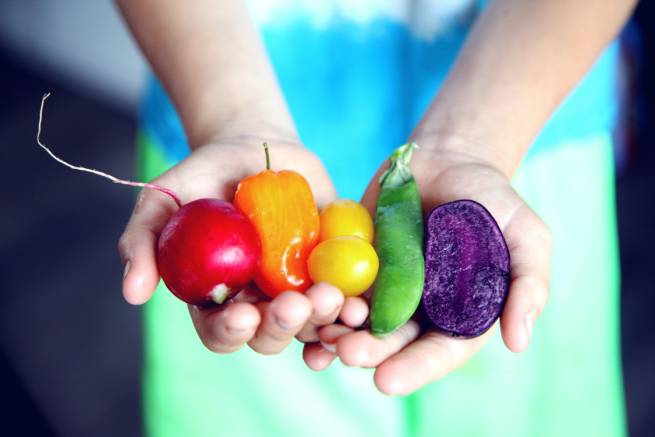Maintaining kidney health is crucial for overall well-being, and diet plays a significant role in this. Our kidneys perform vital functions, such as filtering waste, balancing fluids, and regulating blood pressure. The foods we consume can either support or strain these essential organs. In this article, we’ll explore how diet impacts kidney function, identify harmful and beneficial foods, and provide practical tips for making dietary changes that support kidney health. We'll also highlight the benefits of incorporating Vidafuel protein drinks, which are specifically designed to be kidney-friendly.
Understanding the Kidneys and Their Function
What are the Main Functions of the Kidneys?The kidneys are remarkable organs with several critical roles in the body. These bean-shaped organs, located on either side of the spine, just below the rib cage, perform the following primary functions:
- Filtering Waste: The kidneys filter out waste products and excess substances from the blood, which are then excreted as urine.
- Balancing Fluids: They help maintain the body's fluid balance by regulating the amount of water excreted.
- Regulating Blood Pressure: The kidneys produce hormones like renin that regulate blood pressure.
- Electrolyte Balance: They manage levels of electrolytes such as sodium, potassium, and phosphorus, which are essential for nerve and muscle function.
- Detoxification: The kidneys remove toxins and harmful substances from the blood.
How Can Diet Negatively Impact Kidney Health?
Foods and Nutrients to Watch Out For
Certain foods and nutrients can be particularly harmful to the kidneys, especially when consumed in excess. Here’s how some common dietary components can negatively impact kidney health:
- High Sodium Foods: Excessive salt intake can lead to high blood pressure, which puts additional strain on the kidneys. Processed foods, canned soups, and fast food are typically high in sodium.
- High Phosphorus Foods: Too much phosphorus can lead to bone and cardiovascular issues in people with kidney disease. Foods high in phosphorus include dairy products, nuts, seeds, and dark colas.
- High Potassium Foods: While potassium is essential, too much can be harmful to those with impaired kidney function. Foods rich in potassium include bananas, oranges, potatoes, and tomatoes.
What are the Warning Signs of Declining Kidney Health?
Early detection of kidney issues can prevent further damage. Common symptoms of declining kidney function include:
- Fatigue and weakness
- Swelling in the ankles, feet, or hands
- Frequent or reduced urination
- Changes in urine appearance (foamy or dark-colored)
- Shortness of breath
- Persistent itching
- Nausea and vomiting
If you experience any of these symptoms, it’s crucial to consult a healthcare provider.
What are the Long-Term Consequences of Poor Kidney Health?
Chronic kidney disease (CKD) can lead to several serious health issues, including:
- Heart Disease: Poor kidney function increases the risk of cardiovascular problems.
- Nerve Damage: Uremic neuropathy can occur, leading to numbness and tingling in the limbs.
- Bone and Joint Issues: Kidney disease can lead to bone weakness and an increased risk of fractures.
- Kidney Failure: Severe CKD can progress to end-stage renal disease (ESRD), requiring dialysis or a kidney transplant.
How Can I Incorporate Kidney-Friendly Foods into My Diet?
Beneficial Foods for Kidney Support
To support kidney health, focus on including the following foods in your diet:
- Low-Sodium Options: Fresh fruits and vegetables, herbs and spices for seasoning instead of salt.
- Low-Phosphorus Foods: Egg whites, lean meats, and fish.
- Low-Potassium Foods: Apples, berries, grapes, and cauliflower.
Practical Tips for Making Dietary Changes
- Read Labels: Check food labels for sodium, potassium, and phosphorus content.
- Cook at Home: Preparing meals at home allows you to control ingredient quantities.
- Stay Hydrated: Drinking adequate water helps the kidneys flush out toxins.
Vidafuel Protein Drinks: A Kidney-Friendly Choice
Vidafuel protein drinks are an excellent addition to a kidney-friendly diet. These drinks offer a convenient way to meet protein needs without overloading on harmful nutrients.
- 16g of Complete Protein per Serving: Supports muscle maintenance and overall health.
- Collagen and Whey Protein: Promotes bone and joint health, with easy digestibility.
- All 20 Amino Acids: Essential for various bodily functions, including tissue repair and nutrient absorption.
- Kidney-Friendly and Diabetic-Friendly: Formulated to meet the needs of those with kidney and diabetic concerns.
Incorporating Vidafuel protein drinks can be particularly beneficial for individuals undergoing dialysis, recovering from surgery, or needing additional protein due to health conditions.
What Lifestyle Changes Can Improve Kidney Function?
Beyond Diet: Other Key Factors
- Stay Hydrated: Aim to drink at least eight glasses of water a day.
- Manage Blood Pressure: Regular exercise and a healthy diet can help maintain normal blood pressure levels.
- Maintain a Healthy Weight: Obesity can increase the risk of kidney disease, so aim for a balanced diet and regular physical activity.
- Avoid Smoking and Excessive Alcohol: Both can harm the kidneys over time.
- Regular Check-Ups: Routine medical check-ups can help catch kidney issues early.
When Should I Consult a Healthcare Provider About Kidney Concerns?
Knowing When to Seek Help
If you have a family history of kidney disease, experience persistent symptoms like fatigue, swelling, or changes in urination, it’s essential to consult a healthcare provider. Early detection and management are crucial for preventing severe kidney damage.
In summary, maintaining a kidney-friendly diet involves being mindful of sodium, phosphorus, and potassium intake, while embracing foods that support kidney health. Practical dietary changes, combined with a healthy lifestyle, can significantly impact kidney function and overall well-being. Including kidney-friendly products like Vidafuel protein drinks can provide essential nutrients in a convenient and safe manner. Remember, when it comes to kidney health, prevention and early intervention are key. Stay informed, stay healthy, and take proactive steps to support your kidneys!

